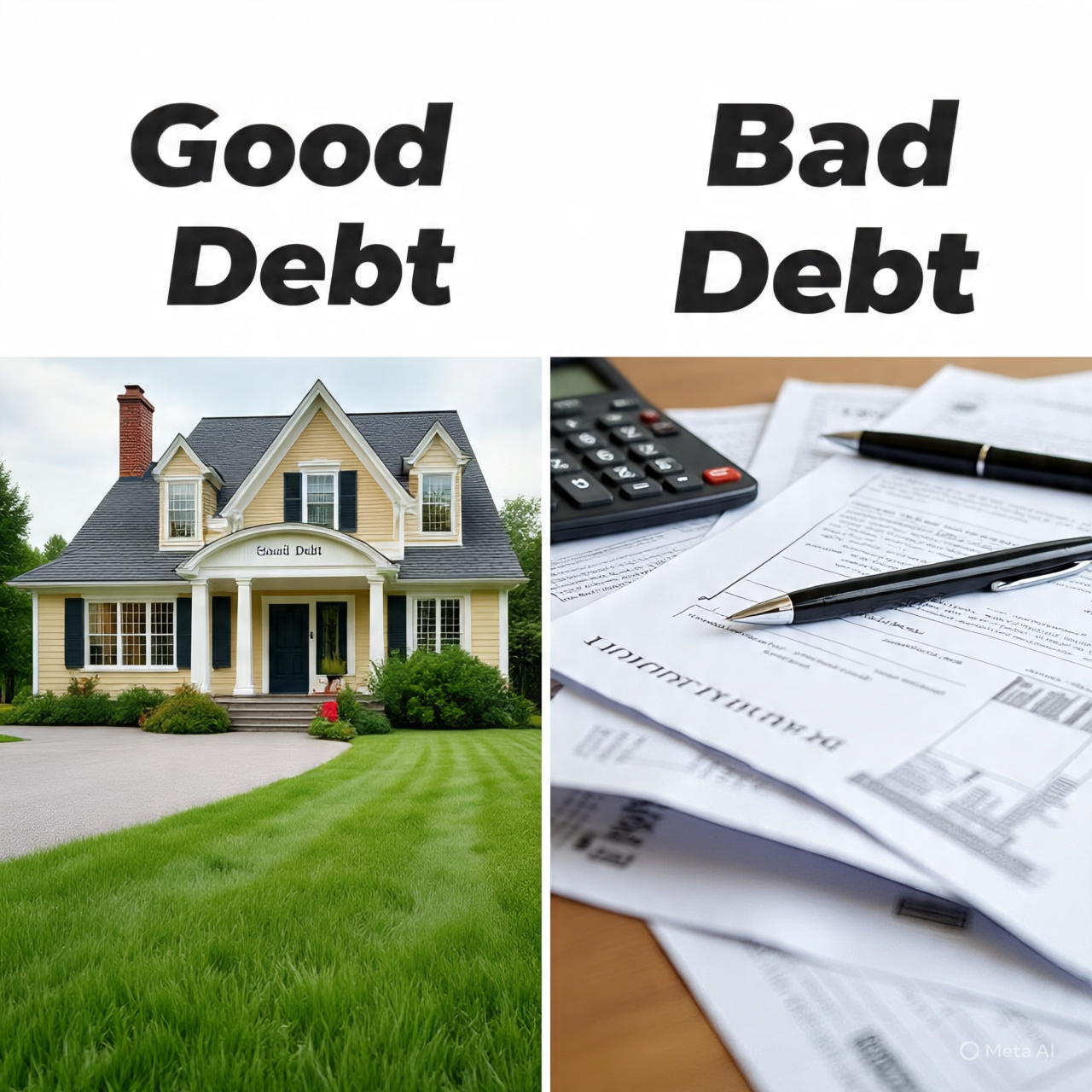
Most people tremble when they hear the word “debt.” That is understandable; we’ve all been made to see debt as some terrifying monster lurking in the shadows, ready to eat our financial life away. But here’s a twist that could change your belief; debt isn’t necessarily an enemy.
Think of debt like fire. When in the right hands, it’s a force that can heat your house and prepare your meals. When it is in the wrong hands it can wreak havoc. The secret is understanding how to harness it and have it work in your favor. It’s a fairly simple idea, some debts can grow your wealth, and some debts suck it dry. Let’s refer to them as good debt and bad debt.
Good debt, in other words, is money borrowed for something that can appreciate or earn you income down the road. It’s like sowing a seed that blossoms into something larger and improved. Something like education loans to finance higher skill training that increase your income potential, business loans that power profitable enterprises or mortgages for homes that appreciate or rent.
The golden rule with good debt is very straightforward; it should have a ROI greater than what you pay to borrow. When used properly, good debt returns to you more than it costs.
Okay, now let's look at what makes debt dangerous. Bad debt is money borrowed for things that depreciates quickly or contributes no income to your life. Imagine trying to fill a basket with water; bad debt is doing just that to your finances. Credit card splurges on luxury goods, payday loans with exorbitant rates, and most car loans come to mind. All these debts subtract from your tomorrows without returning anything of value.
The rich understand how debt works and learn how to use it. They don’t fear debt, instead they control it. They deploy it smartly to build assets, not lifestyles. That’s the key distinction that separates winning investors from the rest.
Take real estate, for instance. A mortgage lets you leverage a significant asset with only a percentage of the cost upfront. Savvy investors purchase real estate, have tenants amortize their loan, and observe it increase in value. When they sell or refinance, they create equity and return. This strategy’s made smart people millionaires.
Investing in yourself, education and skill-building loans are powerful wealth-builders when they directly increase your earning power. Whether it’s a professional certification that propels you forward, training that qualifies you for higher-paying positions, or knowledge that lets you launch your own venture, these investments in yourself can return compound dividends for decades.
Business expansion is yet another realm where good debt creates wealth. A smart business loan can provide the cash for more inventory when demand spiked, better equipment to boost production, or marketing to reach new customers. The point is making sure the numbers work and the business has demonstrated a proven capacity before assessing any debt.
Leverage is the key here. What it means is leveraging other people’s money (eg the bank’s or investors) to create assets that pay you. But it becomes bad debt the moment you over borrow or mismanage repayments. I use an easy principle — if the asset isn’t going to generate more than the loan cost and interest, forget it.
The road to financial independence isn’t about escaping debt, it’s about wielding it as a growth weapon. The rich understand this and they use it wisely. They employ smart debt judiciously and with strategy, always with an eye toward future returns and never on impulse.
Your relationship with debt can change once you grasp these concepts. Firstly, you should evaluate your debts; determine which are beneficial for you and which ones are just draining your money. This consciousness is your initial step to changing debt into a resource that generates riches instead of turning it into a snare.
The mission is straightforward; get debt working for you, instead of you working for it. When used smartly, debt can be the bridge between your here and now and enduring financial freedom. It’s time to stop being afraid of debt and start controlling it.
Posted Using INLEO